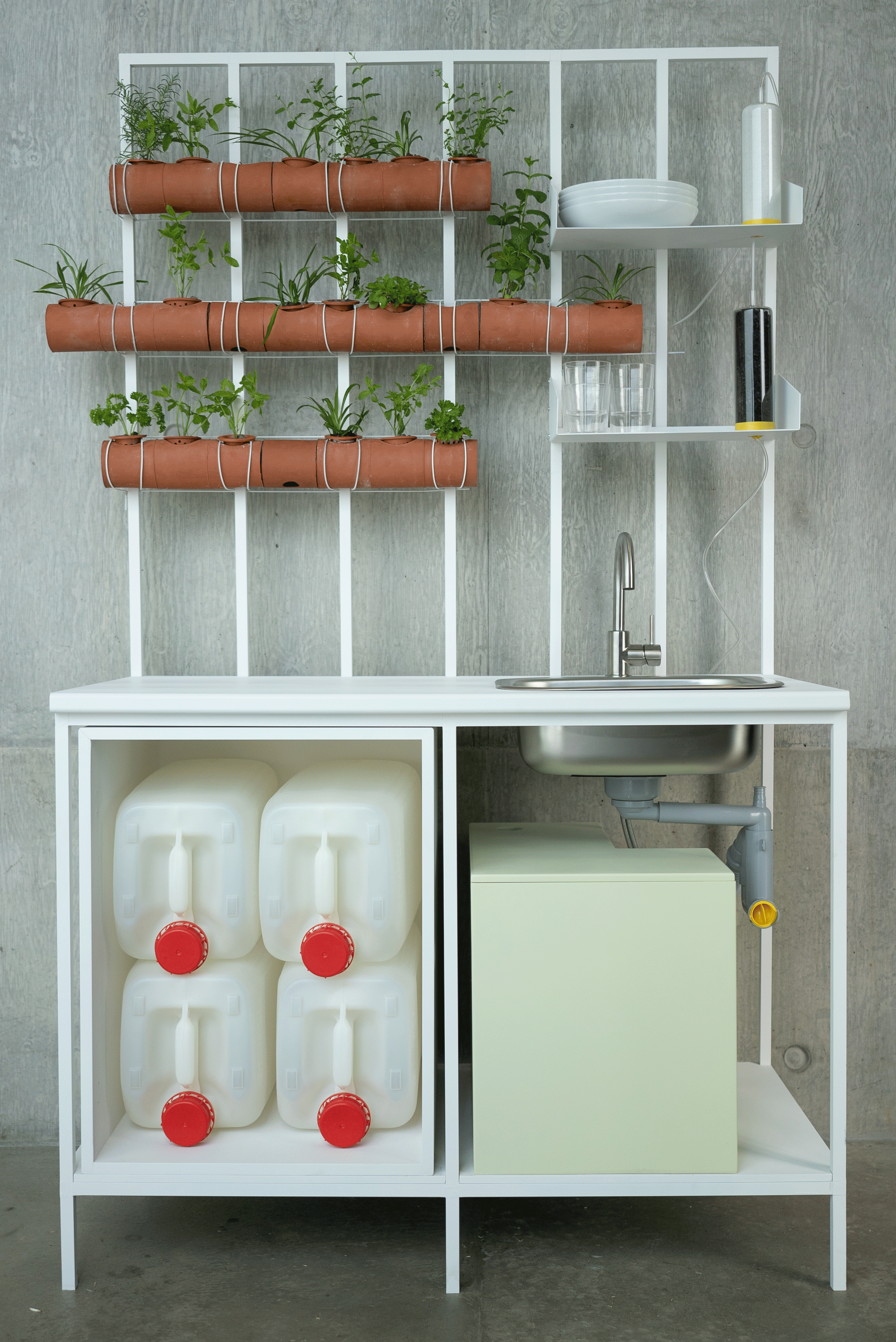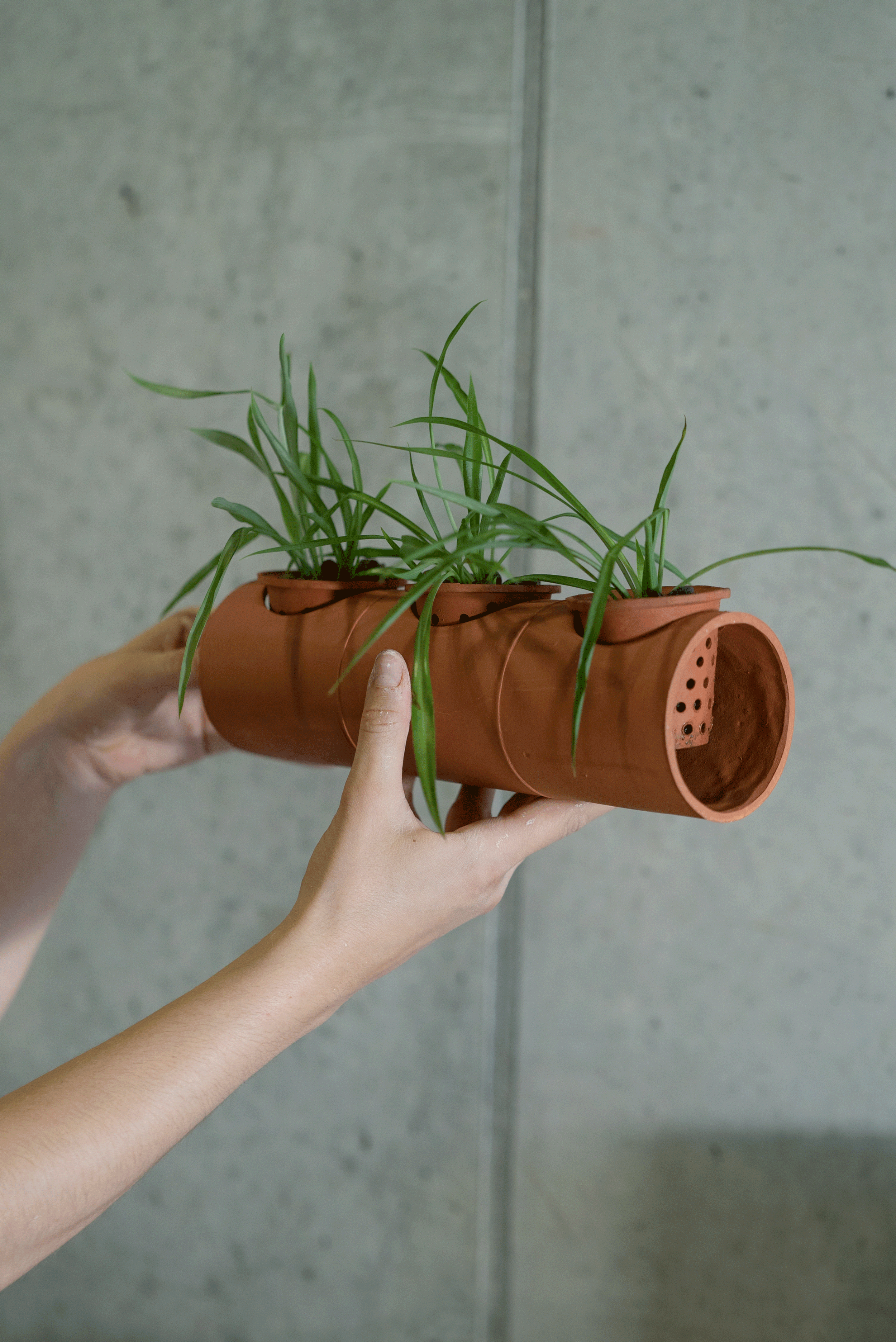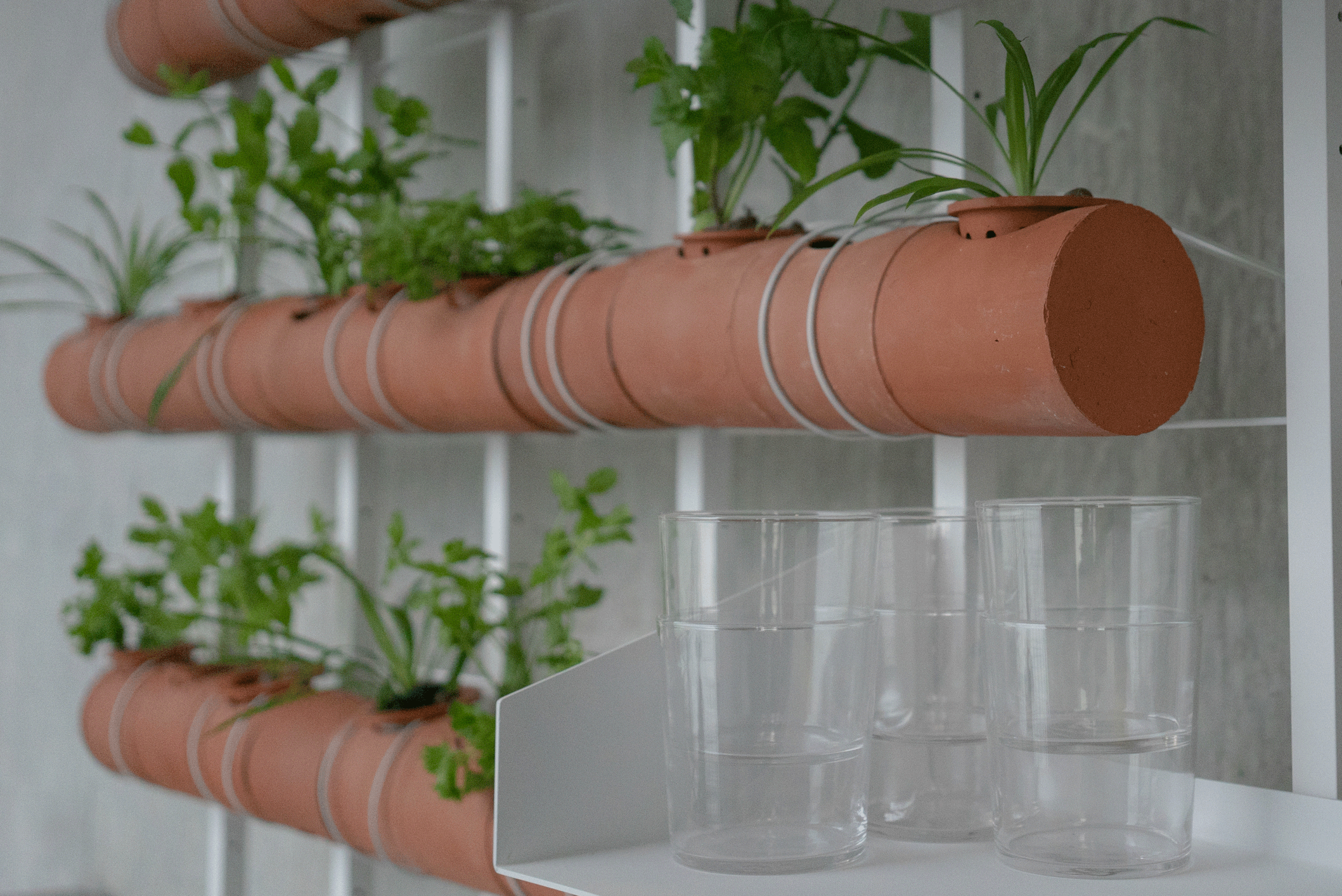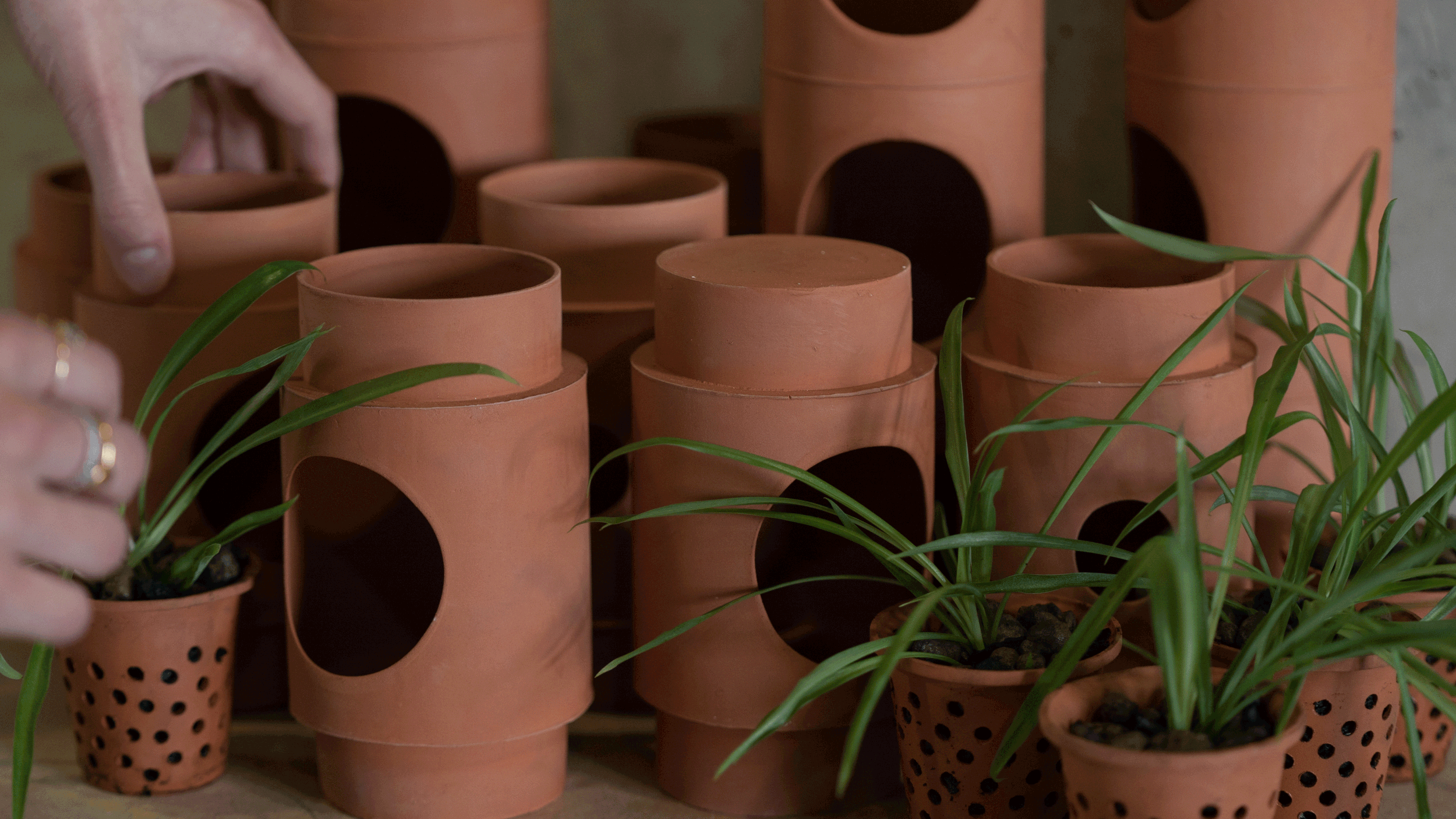Aqua Dentro
Is it possible to change our perceptions of what is clean water?
By 2050 the UK will be suffering from serious water shortages alongside sea level rise, both contributing to widespread ecosystem destruction. These phenomena are explicitly linked and largely anthropogenic. The way we dirty and dispose of water today is contributing to a global shortage of fresh water and leans us into a future of complex remediation to ensure enough clean water to go around. Contributing to this we have also disrupted the natural water cycle through activities such as deforestation and pulling ground water. Cities survive from the resources which surround them, and many are designed for goods to enter and waste to leave. Water is one of the most important substances on the planet today, it is infinite yet its quality is finite.
My research began in Sicily where Facciamo il bosco (2020) details some of these issues. Aqua Dentro (2021) is my response. Grassroots water recycling initiatives usually take place in countries where water is scarce and urgent intervention is more apparent. Aqua Dentro suggests a not-so-distant future where water recycling allows for regulated consumption, disposal and reclamation of this finite resource.
It proactively explores a greywater filtration system, using localised production, materials and edible plants the greywater entering the system is channelled through naturally occurring microorganisms to degrade wastewater contaminants, before being purified to drinking water standards. This process invites us to address how we use water, what we put into it, and our day-to-day water habits. Mitigating damaging water habits and paving the way towards circular cities, it attempts to give agency to the individual and explore a future of living off-grid within the city.
This regenerative system is a vision which could result in households reducing their fresh water intake by more than 80%. The success of this project relies on re-evaluating our perceptions of waste and beginning to welcome these processes into our everyday rituals. Challenging the way waste water is perceived could curb the impending water crisis predicted during this century.





